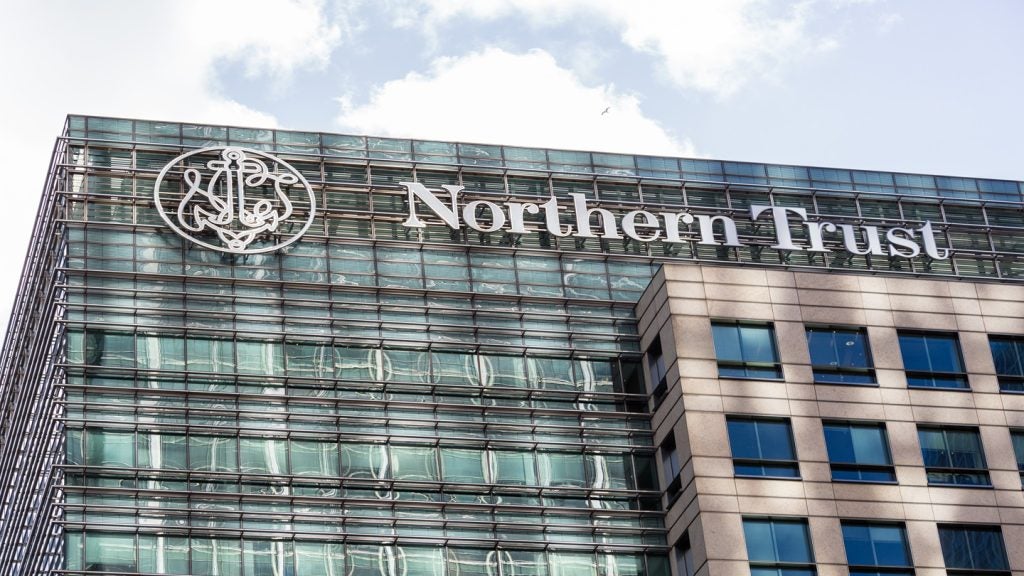As the result of Donald Trump’s US presidential victory is confirmed, the wealth management and private banking industry ponders over the uncertainty created from the shock result
Trump’s rhetoric unlikely to make policy
Will Hobbs, Head of Investment Strategy in UK & Europe, Barclays Wealth and Investment Management
How well do you really know your competitors?
Access the most comprehensive Company Profiles on the market, powered by GlobalData. Save hours of research. Gain competitive edge.

Thank you!
Your download email will arrive shortly
Not ready to buy yet? Download a free sample
We are confident about the unique quality of our Company Profiles. However, we want you to make the most beneficial decision for your business, so we offer a free sample that you can download by submitting the below form
By GlobalDataInvestors are currently running scared, with perceived safe havens such as Treasuries and Gold finding plenty of support and equity markets finding little. Naturally, we can’t predict when this dust will settle, but when it eventually does, we expect markets to remember that there are good reasons for believing that little of President Trump’s campaign trail rhetoric will make it to actionable policy.
Investors remain likely better served by focusing on the fundamental backdrop to the US economy, rather than who presides over it. That backdrop continues to look encouraging for those who would lean their investment portfolios towards stocks and away from bonds as we currently advise. The most reliable cyclical lead indicators are consistent with trend economic growth in the world’s most important capitalist economy. Meanwhile, the labour market is starting to more visibly tighten, with nominal wages finally starting to pick up a little more forcefully. Inflationary pressures are finally returning to the US economy, a factor which informs our belief that government bonds at current levels may offer more return-free risk than risk-free return.
A bigger deal than Brexit
Nigel Green, founder and CEO of deVere
“The Brexit result was a real shock and created instability in the UK. But this is a far bigger deal as this creates instability on a much wider, international scale.
“The markets’ main concerns include Trump’s protectionist policies, focusing on potential trade wars with China – America’s largest trading partner – and with Mexico, it’s third largest.
“In addition, with Trump having said certain countries are ‘cheating’ due to their undervalued currencies, currency tensions should also be expected.”
“Whilst some people are put-off investing because of volatility, many of the most successful investors welcome it. This is because major buying opportunities are always found where there are fluctuations.
“Fluctuations can cause panic-selling and mis-pricing. High quality equities can then, for example, become cheaper, meaning investors can top up their portfolios and/or take advantage of lower entry points. This all, in turn, means greater potential returns.
Speaking the day before the election result, Green said:
“"With a Trump win we can expect in the immediate aftermath a double whammy negative impact on the market.
“This is because the likely sell-offs will be compounded by the markets having priced in a Clinton victory and were wrong.”
Risk to US-China relations
Tuan Huynh, Chief Investment Officer, APAC, Deutsche Bank Wealth Management
The result today has seen Asia equity markets sell off. U.S. yields have also come off. Oil prices have dropped significantly as well. These have been due to markets pricing in a Clinton victory over the past few months in the lead-up to the U.S. election.
There is likely to be increased volatility in markets as investors in Asia await further clarity on policies. There is likely to be risk off at least over the next three months, due to increased uncertainty. EM assets may be vulnerable near-term.
Asia markets will remain concerned about Trump’s election promises for a protectionist stance, on immigration and on a different economic policy. It is now also more uncertain to whether the Trans Pacific Partnership between the U.S., Japan and several Asia countries will be implemented.
One key risk is U.S.-China relations. A Trump administration brings more uncertainty to cross-Pacific relations. Given that Trump wants to increase tariffs on China, and has usually taken an unfavorable view on China, a deterioration of U.S.-China relations can potentially hamper the global economic recovery and cause more market volatility in Asia.
Given these, we continue to like fixed income over equities in Asia. We believe that there is increased likelihood that some Asia central banks (in particular Indonesia, Malaysia, India, China) will look to take a more dovish view on monetary policy.
Trump isn’t totally insane
Justin Oliver, deputy CIO, Canaccord Genuity Wealth Management
While the stock-market reaction has been as expected, it is important not to panic.
Trump isn’t totally insane. Yes, trade wars are more likely – labelling China as a currency manipulator is not going to be helpful – and political certainty has clearly reduced markedly in the past 24 hours.
There are longer-term concerns regarding Trump’s economic policies – not least the expectation of significantly increased spending and reduced taxes. This unfunded fiscal stimulus appears to set the US on a worrying path of increased debt accumulation. In the short term, there will likely be an economic simulative effect, which could be viewed as good news. Short term gain, long term pain may be an appropriate way of describing this. And this has worrying implications for US Treasury prices.
Looking past the knee jerk reactions of equity markets, it is possible to make a case for stockmarkets moving higher for a period – reduced regulation, lower corporate taxes, faster economic growth in the short term are all positive factors fundamentally. And of course, where there is weakness, there are buying opportunities.
Monetary policy is also a wildcard. Given past rhetoric, it seems unlikely that Janet Yellen will continue as Chair of the Federal Reserve past next year, and an interest rate hike in December is now far less of a certainty. Faster growth but potentially looser monetary policy could pull in both directions for the US dollar, but the sense at this stage is that the dollar is likely to experience weakness.
Buying opportunity for risk assets
Christian Gattiker, Chief Strategist and Head Research, Julius Baer
Panic will not go away until there is a retail-driven sell-off (capitulation levels)
The statements of long-standing Republican exponents and the President elect will soothe some of the immediate pain.
This will likely turn into a buying opportunity for risk assets in the hours and days ahead – hard-boiled investors and traders should be starting buying into this by now.
For medium- to longer-term investors, a more pragmatic stance is warranted with letting the stabilisation take place first. In technical terms, this would mean the S&P 500 would have to hold the 2,040 threshold. Subsequent buying is warranted only thereafter beyond a three-weeks horizon.
US infrastructure and the US dollar will be the main beneficiaries in the medium term
Safe haven assets such as gold, the Swiss franc and German bunds will continue to benefit from the current uncertainties, but are no panacea.
Things are not as out of whack as they headlines make you think. After the political ‘hullaballoo’ the economic reality will come back into investors’ minds.
Don’t predict the future
Peter Gabriele, Head of Investments in EMEA, J.P. Morgan Private Bank
The key to successful investing and wealth management is not predicting the future, but looking at the present with clarity. While market volatility has been the hallmark of 2016, our goal is to advise our clients on generational wealth management. That requires a focus on underlying fundamentals and investing for the long-term.
Added appeal of safe havens
Cesar Perez Ruiz, Chief Investment Officer at Pictet Wealth Management
For the moment, it is unclear what Trump’s win means for private banking. Trump’s instincts to cut regulation may extend to the financial industry at large. For example, Trump has called for a complete overhaul of the Dodd-Frank Act, introduced by the Obama administration in the wake of the financial crisis. But any moves to lighten the growing regulatory burden on banks and insurers may be of more relevance to big US investment houses rather than Swiss private banks.
The impact on Swiss private banks of Trump’s win may come on another level. The volatility spikes that we can expect in the coming weeks and months as the incoming Trump administration rolls out its policies may mean that safe havens have added appeal for investors. This appeal will be reinforced by Trump’s intentions to put ‘America first’, which may cast a shadow over global trade and thus the prospects for investors in a number of export-dependent economies in the emerging world.







